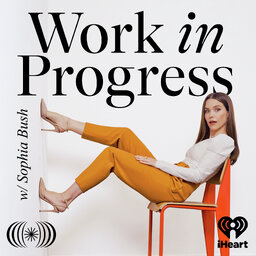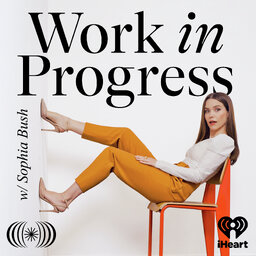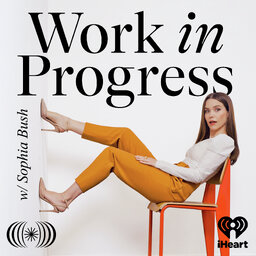Oge Egbuonu is a filmmaker focused on disruptive and inspirational storytelling. She joins Sophia on "Work In Progress" to discuss her documentary (IN)VISIBLE PORTRAITS, which was just released via Vimeo On Demand. Oge describes the film as a “love letter to Black women, and a reeducation to everyone else.” She and Sophia also talk about her childhood, what she learned from making the film, the importance of therapy, yoga, and more. Watch (In)Visible Portraits: https://vimeo.com/ondemand/invisibleportraits
Executive Producers: Sophia Bush & Sim Sarna
Supervising Producer: Allison Bresnick
Associate Producer: Caitlin Lee
Editors: Josh Windisch and Matt Sasaki
Music written by Jack Garratt and produced by Mark Foster
Artwork by Kimi Selfridge.
This show is brought to you by Brilliant Anatomy.
 Work in Progress with Sophia Bush
Work in Progress with Sophia Bush


